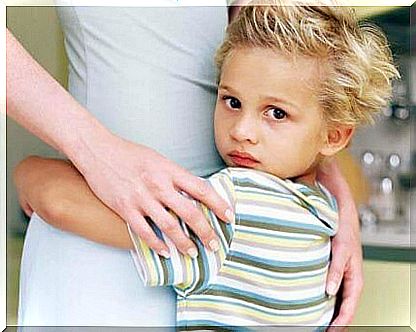Raising Children: 3 Common Mistakes To Avoid

Raising children is not easy; they are not born with an instruction manual and mistakes in raising children are practically inevitable. Many parents can feel overwhelmed with child-rearing because they often do not know what to do to discipline a child who is “out of control” and get them back on track.
In the last few decades we have also seen radical changes in families and parent-child relationships. These changes have led to some very important advances, such as greater recognition of children’s rights and the ban on beatings from education. In general, we have moved from an authoritarian model to an egalitarian model, characterized by ambiguous and open ideas about how to raise a child. And in this context, there is still controversy about how parents should actually discipline and raise their children.
There are many parents who complain that they are no longer allowed to draw boundaries and that they just don’t know how to control their children. As parents, it is not easy to find a way how children can be brought to their senses in a society that demands ever more freedom . And at the same time society does not know how to use this freedom without putting more obstacles in the parents’ way.
Raising children is not easy
Raising children goes beyond satisfying the basic needs of the offspring. Raising children also teaches everyone involved and strengthens mutual affection and support as well as respect for one another. Such an environment also encourages the development of a secure bond and also makes it easier to set standards and limits.

In addition, parents should maintain a balance between freedom and control that is appropriate for the age of their children. The ultimate goal is for the children to learn to take care of themselves as their brains develop and mature.
Not all parents know how to act and how to resolve the various mistakes in raising children. Indeed, there are many misconceptions about raising children. Some of these misconceptions are:
- It would be better to be friends with the child.
- Timely punishment would be most effective.
- Discipline is the same as punishment.
- Parents would be solely responsible for how their children develop.
Three common mistakes in raising children
Inconsistency
Inconsistency is a lack of coherence in the various strategies used to control, regulate, and discipline children. Inconsistent parents change the rules in unpredictable ways based on various internal or external factors, such as: B. The presence or absence of the other parent.
In these cases, the guidelines depend more on the mood of the parents than on the behavior of the children. The problem is that there is no systematic plan for correcting inappropriate behavior. This inconsistency can manifest itself in the following ways:
- Rules are arbitrarily applied at different times or not. This is the case when parents make unpredictable changes in their expectations and also in the consequences of bad behavior or rule violations.
- There are disproportionate reactions to the child’s behavior, e.g. B. Punishing appropriate behavior while rewarding inappropriate behavior.
- Parents give in to the child’s wishes, which is basically like being rewarded for unacceptable behavior.
- There is a contradiction between the two parents. Father and mother behave inconsistently about the basic rules and how to correct the behavior of their children when they break these rules.

Excessive tolerance
Excessive tolerance can also be problematic if the children can get away with anything. Children need structure in their environment. You need rules of conduct, discipline and supervision. Excessive tolerance can create confusion and fear in them, which can lead to serious problems in setting long-term limits.
Such freedom of movement can sometimes be attributed to ignorance and lack of parental involvement. Sometimes they just don’t know enough about their children’s activities, who their friends are, or how they conduct themselves in school. In addition, they may not care what their hobbies are, what they like or dislike.
Lack of flexibility
Rigidity or lack of flexibility comes with the use of a very limited range of educational strategies. These strategies are applied indiscriminately to all types of inappropriate behavior. Overly rigid and inflexible parents do not consider the various factors that have contributed to their children’s behavior. In addition, they are unable to adapt their behavior in dealing with bad behavior and the severity of possible punishment.

Overprotection can also be a form of rigidity. For parents, overprotection may be a means of controlling their fear when they otherwise do not know what to do. For children, it is an obstacle to developing appropriate coping strategies. This can result in insecurity and a lack of self-esteem.
It is advisable to allow children to do things for themselves. You don’t need to be monitored and controlled in every situation. Children only need supervision if they are not yet ready to solve certain tasks themselves. We have to let them address problems themselves and even let them make mistakes. You need to understand the consequences of your actions in order to grow and learn.
From a biological standpoint, being a parent can be an easy task. However, from a psychological point of view, it’s a real challenge. If we avoid these three basic and common mistakes in raising children, we will be one step closer to raising confident, prepared children.









